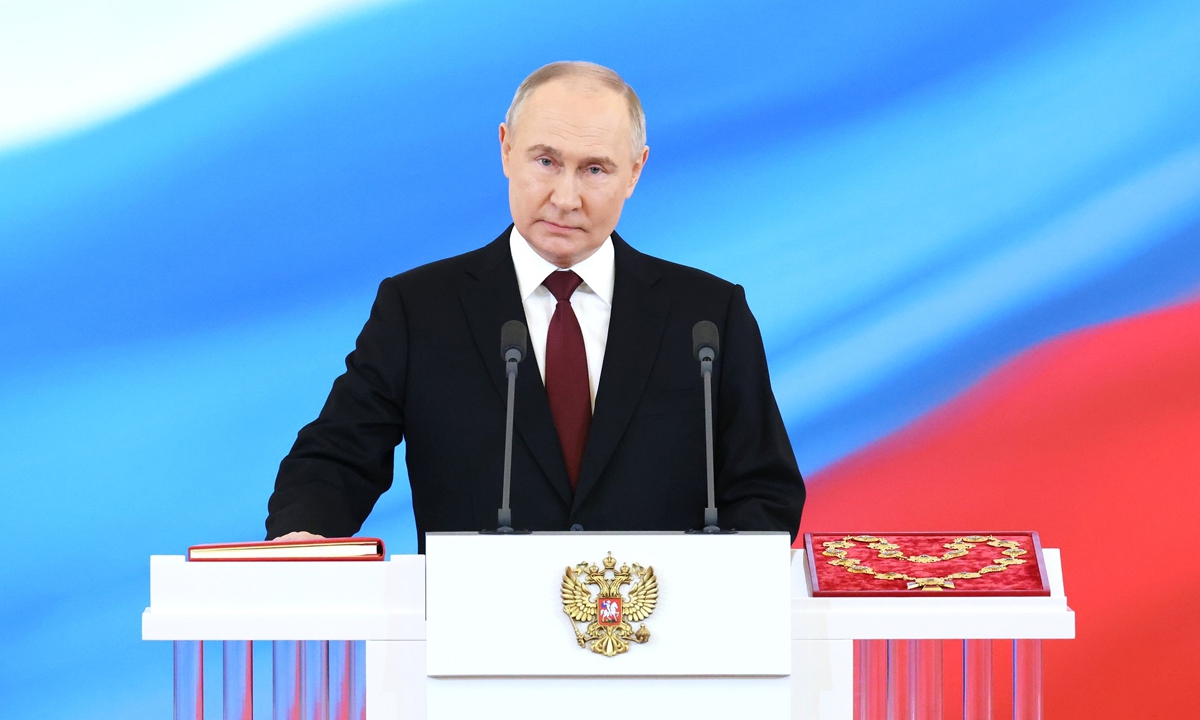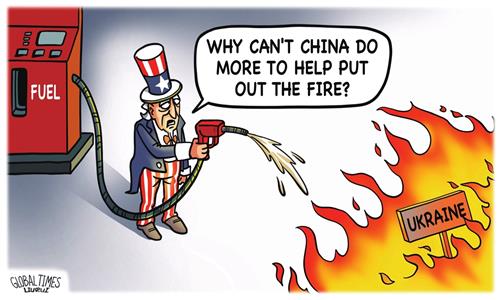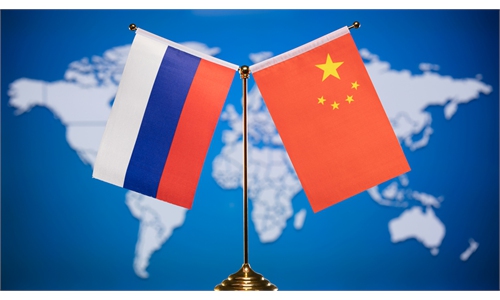Putin starts new term amid tension between Russia, West
Vowing interests, security of Russian people above all else

Vladimir Putin formally takes office as Russian President for another six-year term on May 7, 2024. Putin assured in his inauguration speech that the interests and security of the people of Russia will be above all else for him. Photo: VCG
Vladimir Putin was sworn in for a new six-year term as Russian president on Tuesday at an inauguration ceremony at the Kremlin, marking the fifth oath of office he has taken since 2000. Chinese experts said that Putin's primary policy agenda will be maintaining the current high level of domestic unity while addressing Western sanctions.
While Russia's relations with the West have deteriorated to their lowest point since the Cold War ended, with significant divisions within the West over their Russia stance, Russia's ties with China remain stable and unaffected by the rapidly changing global landscape, observers noted.
During his inauguration speech, Putin assured that the interests and security of the people of Russia will be above all else for him, Russian news agency Sputnik reported.
"I am confident that we will pass through this entire difficult, milestone period with dignity, become even stronger and will definitely implement long-term plans and large-scale projects aimed at achieving development goals," the president said.
In terms of internal affairs, Putin's new term will focus on maintaining the unity, stability and security of his country, as well as the development of the national economy and public welfare, Yang Jin, an associate research fellow at the Institute of Russian, Eastern European and Central Asian Studies at the Chinese Academy of Social Sciences, told the Global Times on Tuesday. "That means tackling a number of problems in the development of industry, trading and agriculture, and improving people's livelihoods," Yang said.
As for external relations, "the first step would be to overcome the challenges brought by the sanctions imposed by the West," the expert said.
In response to the significant external pressures, Russia will make some diplomatic adjustments with relevant countries, including prioritizing traditional friendly nations and enhancing partnerships with neighboring states. This will extend to bolstering relations with Central Asia and the Caucasus, as well as other traditional allies in the Middle East and Northeast Asia, Yang said.
Upon the new presidency, how Russia shapes its policy direction with the West and China have become the key focus of the world.
As Russia-West tensions escalate, Yang said relations between the two sides have dropped to the lowest level since the end of the Cold War and the situation of sanctions and counter-sanctions will not see the tide turned in the short term.
At the inauguration, Putin declared that Russia does not refuse dialogue with Western countries saying "the choice is theirs." A conversation on security issues, strategic stability is possible, but not from a position of strength, but only on equal terms, Putin stated, Sputnik reported.
In contrast, the relationship between Russia and China remains clear and certain. "As their partnership is strategic despite not being an alliance, this type of relationship provides both parties with significant flexibility. Given the current convergence of interests between the two sides, our outlook on the future of China-Russia relations remains healthy, steady and positive, unaffected by global landscape changes," Cui Heng, a scholar from the Shanghai-based China National Institute for SCO International Exchange and Judicial Cooperation, told the Global Times on Tuesday.
President Aide Yuri Ushakov confirmed on Tuesday after the swearing-in ceremony that Putin's first overseas visit for this term will be to China, according to media reports.
When Russian Foreign Minister Sergei Lavrov visited China in February, he reaffirmed that deepening the partnership with China is "the top priority for Moscow," the Xinhua News Agency reported.
Envoys from France, Hungary and Slovakia among several other EU member states were expected to attend the ceremony, Reuters reported on Tuesday, while other Western powers including the US refused to take part.
French President Emmanuel Macron said on Monday that "We are not at war with Russia or the Russian people, and we have no desire for regime change in Moscow."
The varying diplomatic response has underscored divisions on how to develop relations with Moscow against the backdrop of the Ukraine crisis. The Western stance toward Russia is not set in stone. Despite attempts to resist Putin's authority, Russia's status as a major global player and Putin's leadership has never been truly negated when it comes to matters concerning global and European interests. The "boycott" is actually a "stage play," Cui said.
However, for countries like France which maintain an independent and pragmatic stance, they have grasped a better initiative for their future dealings with Russia, the expert noted.
Following the inauguration, the Russian government resigned to the newly elected president by a decree signed by Prime Minister Mikhail Mishustin. The cabinet will continue to carry out its duties until a new government is appointed, according to a TASS report.
In 2000, the 47-year-old Putin garnered backing from 52.94 percent of the Russian voters. This support increased to 71.31 percent in 2004, 63.6 percent in 2012, and 76.7 percent in 2018. By the March 2024 elections, the 71-year-old candidate saw a record-high support rate of 87.28 percent.


